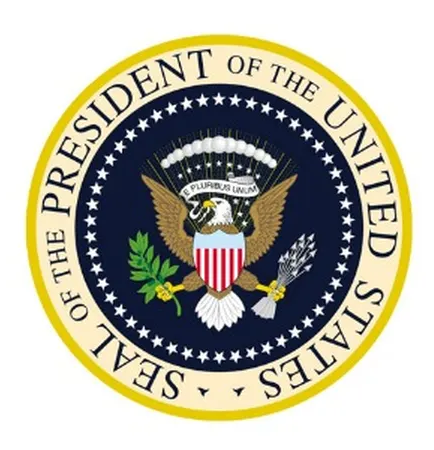Executive Order 14199, Withdrawing the United States from and Ending Funding to Certain United Nations Organizations and Reviewing United States Support to All International Organizations, signed by President Donald Trump on February 3, 2025. 90 Federal Register 9275 (February 10, 2025) (Full Document) "This article was drafted with the assistance of ChatGPT, an AI language model. All content has been reviewed and edited by Vernellia Randall to ensure accuracy and coherence."
 On February 3, 2025, President Donald Trump signed Executive Order 14199, directing the withdrawal of the United States from the United Nations Human Rights Council (UNHRC) and ending U.S. funding to the United Nations Relief and Works Agency for Palestine Refugees in the Near East (UNRWA). The order also mandates a comprehensive review of U.S. participation in international organizations, treaties, and conventions to determine their alignment with American interests.
On February 3, 2025, President Donald Trump signed Executive Order 14199, directing the withdrawal of the United States from the United Nations Human Rights Council (UNHRC) and ending U.S. funding to the United Nations Relief and Works Agency for Palestine Refugees in the Near East (UNRWA). The order also mandates a comprehensive review of U.S. participation in international organizations, treaties, and conventions to determine their alignment with American interests.
As a result of this executive order, all federal agencies are prohibited from allocating funds to UNRWA, and the U.S. Representative to the UNHRC is required to close their office. The order further authorizes the Secretary of State to evaluate whether continued engagement with other international bodies serves U.S. priorities, potentially leading to additional withdrawals or funding cuts.
The stated rationale for these actions includes concerns over anti-American bias, financial inefficiency, and a perceived failure of these organizations to uphold human rights and democratic values. The administration argues that U.S. tax dollars should not support organizations it deems ineffective or politically hostile to U.S. interests. However, the order does not specify alternative mechanisms for addressing human rights issues or assisting displaced populations previously supported by UNRWA.
Impact on Palestinian Refugees and Middle Eastern Communities
The defunding of UNRWA has severe consequences for Palestinian refugees, one of the most systematically displaced and oppressed racialized groups in the world. The agency provides critical services, including:
- Education: UNRWA operates over 700 schools serving more than half a million students, ensuring access to education for Palestinian children who face discrimination and displacement. Defunding the agency disrupts educational access, increasing long-term economic and social inequities.
- Healthcare: UNRWA clinics provide medical care to millions of refugees, particularly those in Gaza, Lebanon, Syria, and Jordan. Cutting U.S. funding worsens health disparities and exacerbates medical crises in these regions.
- Food Security and Employment: In Gaza, where unemployment is among the highest in the world, UNRWA provides jobs and food assistance. Removing U.S. support intensifies poverty and hunger among racialized and displaced communities.
Beyond Palestine, defunding UNRWA aligns with broader anti-Arab and anti-Muslim policies that disproportionately impact Middle Eastern populations. It reinforces Islamophobic and racialized narratives that deny aid and resources to Arab-majority communities while maintaining geopolitical policies that contribute to their displacement.
Impact on Global Human Rights and Racialized Communities
The withdrawal from the UNHRC weakens U.S. involvement in monitoring and addressing human rights abuses globally. The UNHRC plays a crucial role in:
- Investigating racialized violence: The council monitors state-sanctioned racial violence, including anti-Black police brutality, forced displacement of Indigenous peoples, and ethnic persecution. Without U.S. participation, racist regimes may feel emboldened to act with impunity.
- Advocating for Indigenous and Afro-descendant rights: The UNHRC is instrumental in addressing Indigenous sovereignty, land dispossession, and environmental racism, as well as global anti-Black racism. U.S. withdrawal signals a retreat from commitments to racial equity on an international scale.
- Strengthening accountability for racial injustices: Countries facing scrutiny for human rights violations—such as South Sudan, Myanmar, and China—often target racial and ethnic minorities. Without U.S. engagement, the global racial justice movement loses a key voice in challenging state violence.
Intersectional Analysis: Gender, Race, and Class
The executive order not only disproportionately affects racialized communities but also exacerbates gendered and economic inequalities.
- Women and Girls: Most who rely on UNRWA's services—particularly education and healthcare—are women and girls. The U.S. withdrawal increases gendered disparities by restricting access to schools, reproductive healthcare, and social protection.
- Working-Class and Poor Communities: Those most impacted by these cuts are low-income and working-class refugees who depend on humanitarian aid to survive. The executive order deepens economic precarity for racialized communities already facing structural exclusion.
- LGBTQ+ Communities: The UNHRC has played a role in advocating for LGBTQ+ rights globally, particularly in regions where racialized and LGBTQ+ identities intersect. The U.S. withdrawal creates additional challenges for global LGBTQ+ advocacy efforts.
Broader Implications for U.S. Racial Justice Efforts
Domestically, this executive order reflects broader trends of racialized policy decisions under Trump's administration. The move aligns with previous efforts to:
- Defund racial justice and human rights initiatives: Similar to domestic cuts to civil rights protections, this order extends racial injustice to the global stage.
- Weaken accountability mechanisms: Just as domestic policies have attempted to roll back police reform and voting rights, this order reduces international oversight over racial injustice.
- Promote nationalist, anti-immigrant, and exclusionary policies: The order's emphasis on "America First" mirrors restrictive immigration policies, travel bans, and border militarization, all of which disproportionately harm Black, Brown, and Indigenous communities.
Conclusion
By withdrawing from key human rights organizations, Executive Order 14199 escalates racial injustice on a global scale. It deepens disparities for Palestinian refugees, racialized and Indigenous communities, working-class people, women, and LGBTQ+ individuals while strengthening oppressive regimes that rely on racialized violence. The global impact of this decision cannot be overstated, making it essential to restore international commitments to racial equity, human rights, and global justice.


